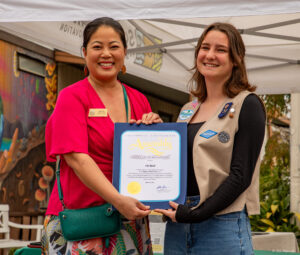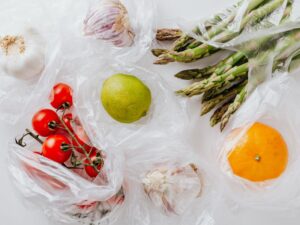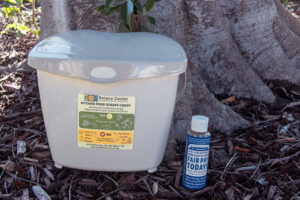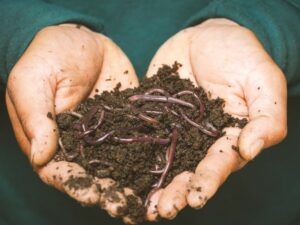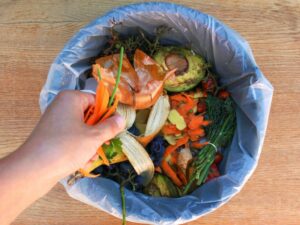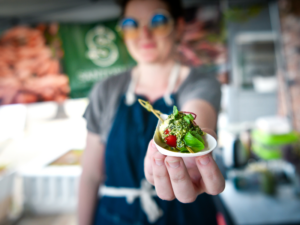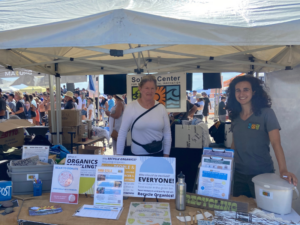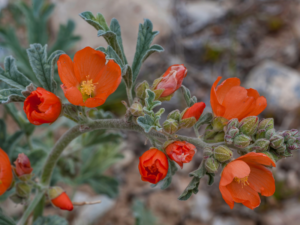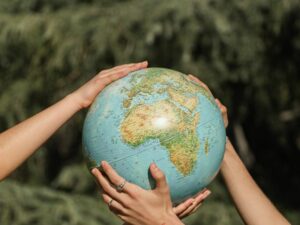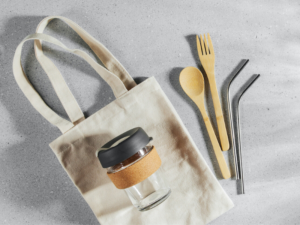Taking on Textile Waste 2024
The Taking on Textiles event was held on March 23, 2024 at Solana Center for Environmental Innovation in Encinitas, CA. It was open to the public. We were grateful for recognition from California Assemblymember Tasha Boerner’s office. District Director Janet Chin spoke to the importance of the event as an early beacon to the increasing…
Read MorePlastic Recycling Program – Thanks to Plastic Beach!
Tell a friend; we’ve got a plastic bag and wrap recycling program at Solana Center! Thanks to our partner Plastic Beach for making recycling easier for plastic materials that can’t go in the standard blue bin. They work to ensure all of the plastic bags and film are staying in the U.S. and being recycled nearby,…
Read MoreHow to Keep Your Kitchen Food Scraps Caddy Fresh
Solana Center for Environmental Innovation supports California’s SB 1383 legislation, to divert organic materials such as food and nourish soils through compost production in order to feed future generations. One of the ways we offer support is through our Climate Solutions Resource Center. Did you know we offer products to support your environmental journey? Are…
Read MoreClimate Solutions: What should I do with my worms while on a trip?
Question: “What should I do with my worms while on a trip?” Answer: Depending on the length of your trip, you will likely not need to do anything at all. Even a new population of worms only needs to be monitored every few days to assess how much food was eaten, moisture levels, and whether they need…
Read MoreHow Can Cutting Your Food Waste Help the Climate?
Food waste is a common problem many households and food establishments are faced with. Throwing away food scraps and leftovers that could have been eaten seems like an easy solution but in reality has devastating outcomes. When food waste enters a landfill, it begins contributing to greenhouse gas emissions due to the anaerobic environment. When food…
Read MoreFood Waste Warrior: Liz Murphy of Santosha Nutrition 🍓
Liz Murphy, founder of Santosha Nutrition, speaks on how food waste prevention impacts her San Diego business: “Santosha was founded on the principles of supporting local farmers and lowering waste. When I purchase produce from the market it is really important to me that I use as much of the product as possible. It respects the…
Read MoreWhat’s Solana Center up to for Earth Month? 🌎
Check out our Earth Month events! Workshops Outreach Booths Open Volunteer Opportunities
Read MoreFour Ocean-Friendly Gardening Tips
Many San Diegans are concerned about keeping our waterways clean. In fact, surveys conducted across San Diego County show that more than 50% of residents believe that pollution of our creeks, lakes, and beaches directly affects them and their families. Yet in many urban areas, water runoff is the #1 source of ocean pollution. This…
Read MoreWaste Reduction
Waste reduction is the practice of making less, consuming less, and inevitably disposing of less. Reduction is the ultimate goal, not only because it protects our environment from waste, but because it prevents the destructive processes of extraction and manufacturing that happen upstream of our materials. The world’s population is growing, economies are growing, and…
Read MoreHow to Prevent Microfiber Pollution in Your Household
Have you heard of the term ‘microfibers’? These are tiny synthetic pieces of plastic yarn often shed by our clothing when in the washing machine. While they sound small, these microfibers have a big impact on our water ways and oceans, unfotunately often making their way to be ingested by marine life. Near the North Pacific Gyre of the…
Read More
